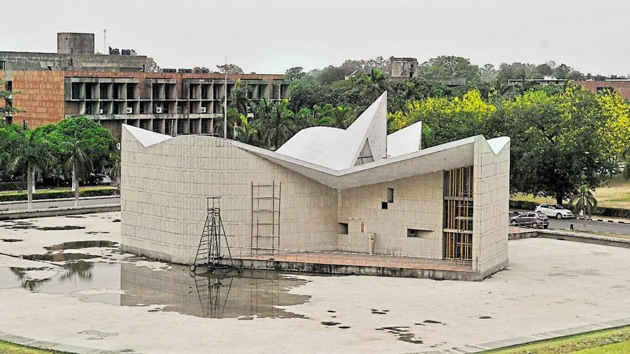Three-bin system to be implemented in Panjab University
To deal with disposal, collection and removal of waste in hostels and other areas on the Punjab University (PU) campus, especially at the students centre, PU has decided to launch a three-bin system under which three separate bins will be installed for organic, recyclable and general waste.
To deal with disposal, collection and removal of waste in hostels and other areas on the Punjab University (PU) campus, especially at the students centre, PU has decided to launch a three-bin system under which three separate bins will be installed for organic, recyclable and general waste.

Panjab University Centre for Public Health launched the system on Friday on the campus. The centre has also initiated a study to see how much waste is generated on the campus.
Suman Mor, Centre for Public Health coordinator, said, “I was working on this system for the past two months. The system of having green, white and black bins on the campus will enable us segregate waste efficiently and will also help convert organic waste into compost.”

She added that after complete implementation on the campus, PU will then try to put similar systems in place in affiliated colleges, institutes and government offices.
As per the three-bin system, wet/organic material including cooked food/ leftover food, vegetable/ fruit peels, egg shell, rotten eggs, chicken/fish bones, tea bags/ coffee grinds, coconut shells and garden waste including fallen leaves/ twigs or the puja flowers/ garlands will all go into the green bin.
Meanwhile, dry/recyclable left over will go in the white bin.
Plastic waste including plastic covers, bottles, boxes, cups, toffee wrappers, soap or chocolate wrapper and paper waste including magazines, newspapers, tetra packs, cardboard cartons, pizza boxes or paper cups/plates will have to be thrown into the white bin.
Metallic items like tins/cans foil paper and containers and even the dry waste including cosmetics, hair, rubber/thermocol, old mops/ dusters/ sponges/ discarded cloth and also the expired credit or debit cards will be thrown into the white bin.
Lastly, the black bin will be for the domestic hazardous waste comprising CFL, tube light, printer cartridges, broken thermometer, batteries, button cells, expired medicines, used syringes, mosquito repellent refill bottles, CDs and old cassettes.
Implementation of the project will be done under the Swachh Bharat Abhiyan, Mor said.
“In hostel number 1, where I am the warden, I have asked all girls to display figures regarding amount of waste generated on the board every evening. It will be like an inventory. This should be encouraged in other hostels as well,” Mor further said.
“Chandigarh, in totality, produces 400 tonnes of waste daily. A student at the Centre for Public Health has already initiated a study to analyse the amount of waste generated in the campus on a daily basis.”
SOLID WASTE MANAGEMENT
Mor had also conducted a study on solid waste management characterization and its assessment for potential methane generation.
The study highlighted a significant increase in municipal solid waste (MSW) generation in India during the last few decades and how its management had become a major issue as poor management practices affected the health and amenity of the cities.





